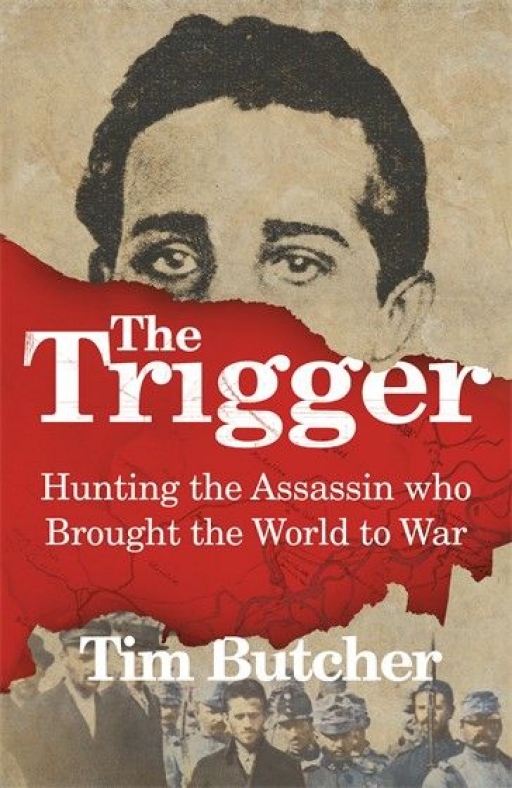Centenary News Review
Review by: Nigel Dacre, CN Editor
The introduction to Tim Butcher’s book The Trigger is unambiguous about the role that Gavrilo Princip played in 20th Century history. He fired “not just the opening shots of the First World War, but the starting gun for modern history”.
But writing about this momentous event 100 years after the assassination took place must have been a daunting prospect. How possibly could there be anything new to say or to discover?
Tim Butcher overcomes this challenge by adopting a three pronged approach.
Firstly, he carries out a detailed re-examination of the available sources: the school reports, police and court records, and medical notes. He sets out to dispel myths and inaccuracies, not least the claim promoted at the time of the shooting that Princip was acting purely as Serbian nationalist. The book carefully presents the argument that he was in fact acting as a broader-based Yugoslav nationalist.
Secondly, Tim describes his own journey through modern-day Bosnia, as he re-traced the route that the young Princip had taken when he travelled through the Balkan countryside on his trips to Sarajevo in the years running up to 1914. At one stage, Tim even spends the afternoon chatting to Princip’s relatives, who still live in the same village, Obljaj, that Princip had been born in.
In travel-writer style, Tim wrote down what he saw and felt as he travelled, a contemporaneous, observational record that allowed him to add colour and context to the places that he visited. This approach means that the historical analysis in the book is interspersed with atmospheric descriptions of the villages, towns and countryside that had been part of the Princip story.
Clearly, Tim is skilled at writing in this style – giving the reader a rich insight into the brooding, complex, and mysterious character of the Balkans.
In Glamoc, for instance, he describes the architecture, the guesthouse where he stayed, and what he had for breakfast (“eggs sunnyside up, or, to use local wording, ‘on your eyes’”).
But looking around the small town, he adds: “Rinsed by the previous night’s rain, the whole scene sparkled in the early light of a hushed summer Sunday.” A beautifully written sentence – controlled, but evocative. The Trigger is packed with writing like this.
The third and most important part of Tim’s approach in The Trigger is to compare the Balkans of the early 20th century to the Balkans of the last 20 years, drawing heavily on his experience as a war reporter in the Balkans in the 1990s, “to face down ghosts of conflicts past and present”.
At one stage while retracing Princip’s travels, Tim joined the annual Peace March to Srebrenica, recalling the mass killings there: “The route followed by the escape column from Srebrenica is today not shown by normal road signs. Instead it is marked by mass graves, one after another”.
The Trigger is an intelligent, well-written, but above all, fresh account of Gavrilo Princip, and the assassination. It’s enjoyable to read, and provides fascinating new insights into a one hundred year old story.
To read Tim Butcher’s feature article for Centenary News about the myths that surround the story of Gavrilo Princip, click here.
What do you think about this book? Please add a comment below.
